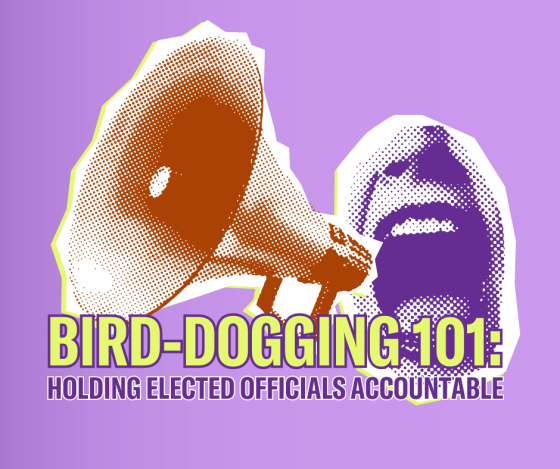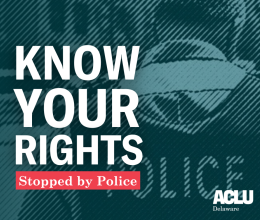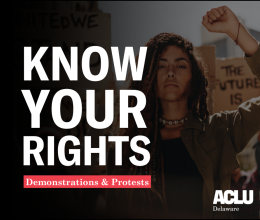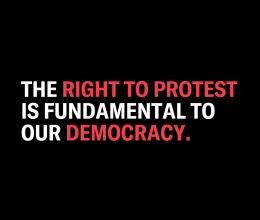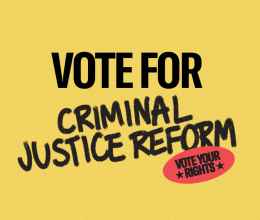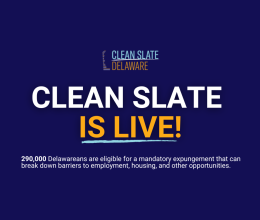SMYRNA — The ACLU of Delaware is stepping in to represent David Holloman, a man punished by a Delaware prison for his attempt to boycott a for-profit company. Mr. Holloman filed his federal pro se complaint in the District of Delaware Court in January, 2023, alleging that he was unconstitutionally repressed by prison officials when he attempted to organize a boycott of the for-profit company Global Tel Link (GTL). GTL, which has a monopoly over the tablets used by incarcerated people to stay in touch with family and loved ones, charges extortionate fees while providing poor service, according to reports.
For many incarcerated, GTL tablets are one of the primary channels for communicating with loved ones, receiving pictures and videos of family members, and providing access to information on the internet — all critical aspects of successful rehabilitation that have only become more important in the midst of the ongoing pandemic. However, access to the tablets comes with a hefty, per-minute, price tag, with little guarantee of service for fees rendered. GTL, a privately owned corporation and one of only two major phone service providers in jails and prisons nationwide, is estimated to reap millions of dollars in profits from its contract with tax-payer funded state prison systems by exploiting incarcerated individuals and loved ones’ human need for connection. Although Delaware does not contain any for-profit prisons, GTL’s monopoly on this essential service often comes with monetary kick-backs to state-run facilities, incentivizing their use by an otherwise captive and desperate customer-base.
Mr. Holloman’s planned boycott was originally set to begin on June 1, 2022. However, on May 16, 2022, after Mr. Holloman and others distributed flyers communicating the boycott, they were detained by correctional officers. On May 24, 2022, Mr. Holloman and other organizers were disciplined for the attempted boycott following a hearing. Mr. Hollman was placed in solitary confinement for more than 10 days, and removed from the Good Behavior Building, where he had resided for two years with no major infraction since 2019.
Prior to the attempted boycott, Mr. Holloman was considered a model prisoner for five years, working in the counselor’s office, and dedicating his time to facilitating programs for other incarcerated individuals. He was scheduled for early release, and eligible for commutation of his sentence.
Despite this history, Mr. Holloman lost good time credit, had privileges suspended indefinitely, and was disqualified from commutation as punishment for his planned peaceful advocacy against a for-profit corporation. He has since been indefinitely relocated to a restricted housing unit, where he remains ineligible to participate in educational programming, workplace training, recreational activities, and other benefits he previously earned for his good behavior. The restrictive housing unit leaves him confined to a two-person cell for all but two and a half hours per day.
“I am elated that ACLU-DE has decided to represent me on this journey for justice against the Delaware Department of Correction (DDOC),” said Mr. Holloman, “DDOC has a demonstrated a pattern of trampling the constitutional rights of incarcerated people based solely on a false assertion of ‘penological interests.’ I hope this case establishes a positive precedent for the right to boycott in Delaware and in the country.”
The Department of Corrections’ officials’ willingness to prioritize the profits of a private corporation over the constitutional rights of an incarcerated individual demonstrates the critical need to reaffirm our First Amendment right to free speech — including the right to organize and participate in boycotts. “Exercising this constitutionally guaranteed right is not only a key tool for advocacy, but it is also inseparable from our country’s history and our ongoing pursuit of justice and equality for all,” said Dwayne J. Bensing, Legal Director at the ACLU of Delaware. “Corporate profits are no substitute for penological interests; these prison officials must be held accountable for their unconstitutional retaliatory and unjustified treatment of Mr. Holloman.”

